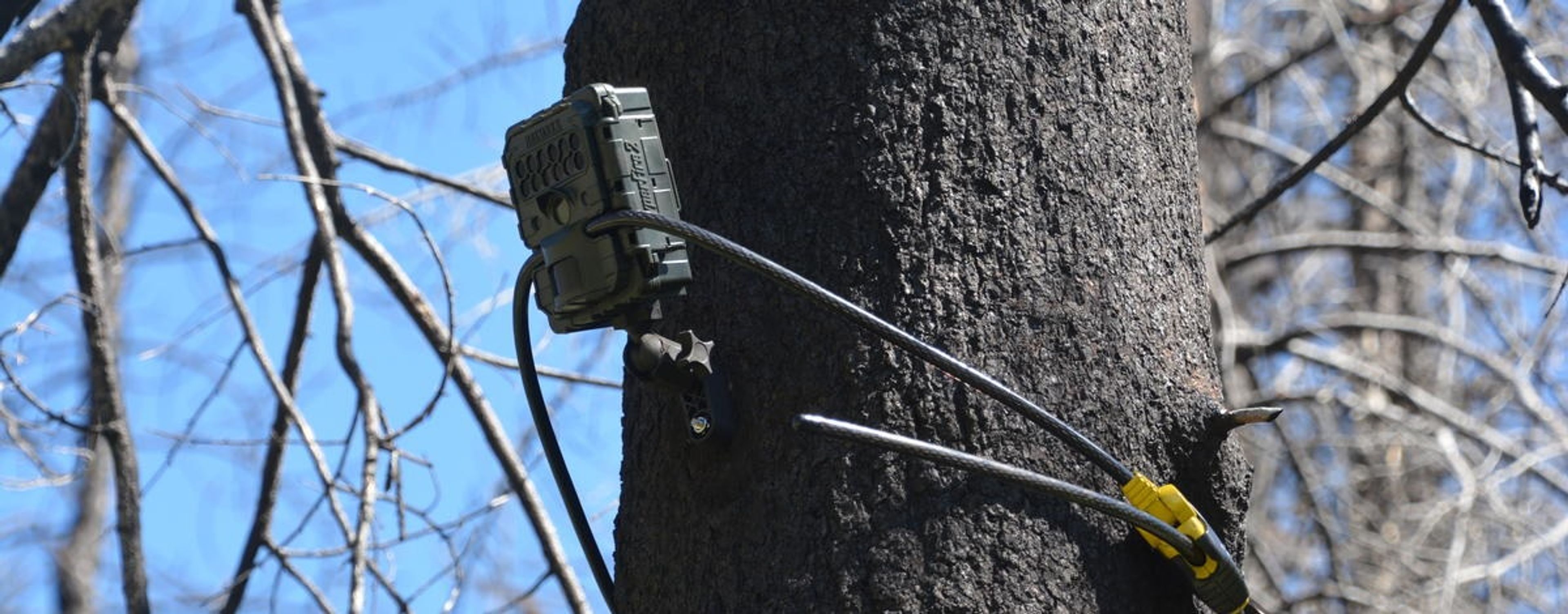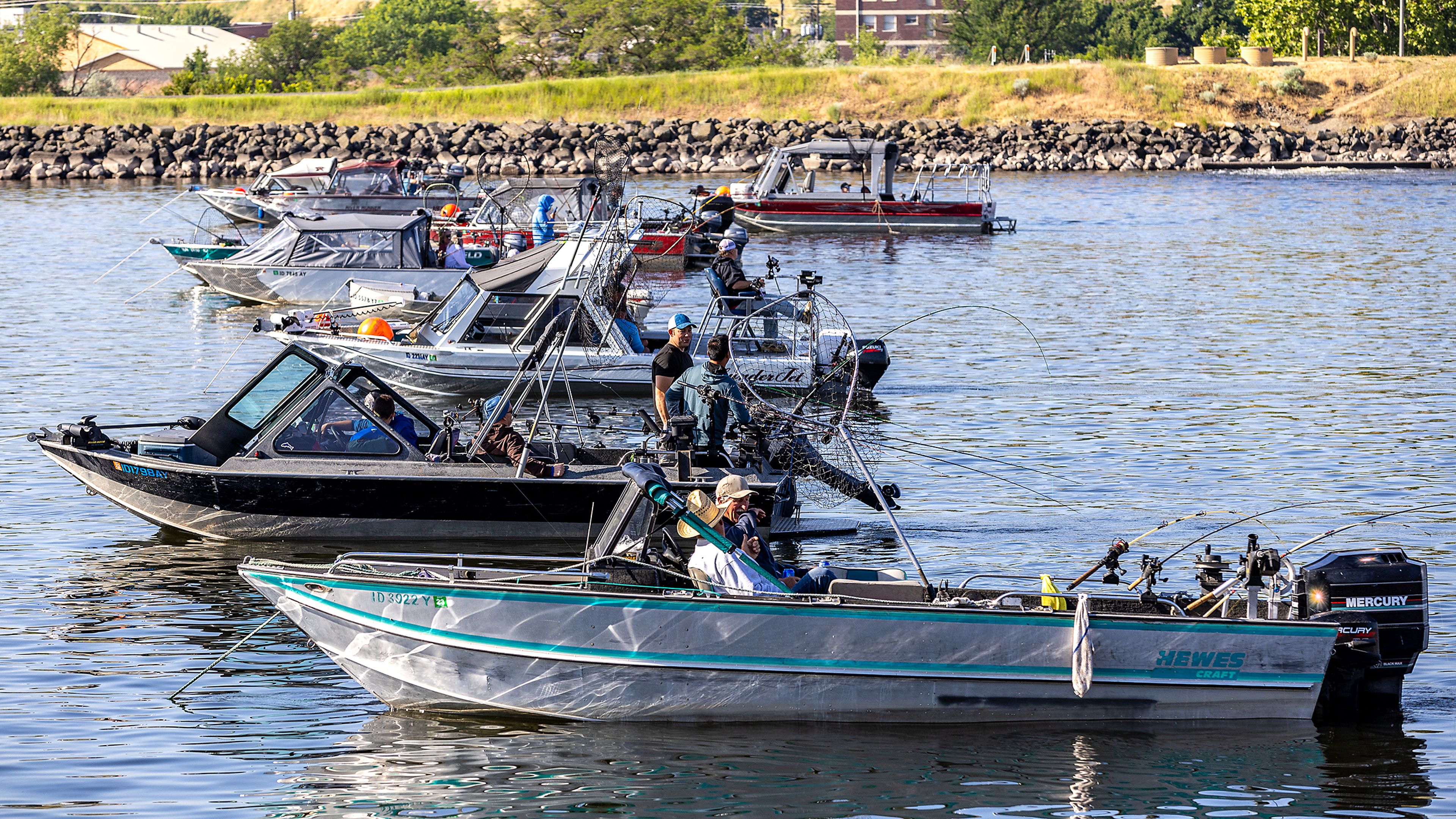Fair chase vs. high tech
At what point does technology eliminate the sporting element from hunting? A committee of Idahoans will soon grapple with that question
Consider the hunting equipment a hypothetical grandfather or great-grandfather used in his youth.
He likely hunted in all-wool clothing. If he used a scope, it was low-powered. The same goes for his binoculars. His rangefinder wasn’t a handheld device that bounced a laser off of a distant object. It was internal — a best guess honed by experience. He may have shot a mass-produced military rifle “sporterized” for civilian use.
Now ponder the technology his descendants have available. His granddaughter may use a precision, custom-built rifle with a high-powered scope that, with a lot of practice and dedication, is accurate at 1,000 yards. His grandson may mask his scent with the latest hunting clothes made from synthetic fabrics and use live feed, Wi-Fi-equipped trail cameras that ping his phone when the monster buck he is stalking trips a motion sensor.
Have the hypothetical grandchildren crossed some technological Rubicon that threatens to put game populations in jeopardy and turn hunting into a lifelike video game? Or are they taking advantage of the same sorts of technological advancements their grandparents did in their youth — upgrades that would have blown the minds of ancestors who hunted with muskets and longbows?
A select group of Idahoans will soon ponder those sorts of questions and author a set of recommendations for the Idaho Fish and Game Commission to consider. The commission directed the Idaho Department of Fish and Game to assemble a Hunting and Advanced Technology Working Group.
Commissioner Don Ebert looks forward to the group’s report but knows it will be a challenge. The members will have to grapple with ideas like fair chase that are nebulous and subjective.
“It’s based on values and where do we draw the line collectively of what is moral and right and what will perpetuate the species?” he said. “When I was a kid, there weren’t very many people with guns that could shoot 800 yards and now there are people who shoot farther with their bows than I would shoot with my rifle — freehand with a rifle, I’m only good for like 125 yards. It’s a pretty hard line to draw.”
Ethics can be tricky even when technology is not involved. For example, Idaho allows black bear hunters to use bait. Washington does not. But Washington does allow hunters to bait deer and elk. In Idaho, that is illegal and considered unethical.
Questions about technology don’t just apply to modern rifles. Many states allow muzzleloader hunters to use sabots. Idaho considers them a technological advance that expands the range of the old-school guns to the point they don’t meet the primitive weapon definition that muzzleloader-only hunts are designed for.
Modern compound bows with cams, high-tech sights and stabilizers are a far cry from traditional stick bows.
For Kyle Maki, the pivotal metric is the point at which a particular piece of technology begins to affect hunting success rates enough that game managers have to change season structures and limit hunting opportunity.
In general, Idahoans can participate in most big-game hunting seasons on an annual basis with hunting tags that are available over the counter. Yes, there are controlled hunts for which participants must first win a permit via drawing. Some elk zones have a capped number of tags sold on a first-come, first-served basis. But resident hunters who don’t draw a controlled hunt permit or are not able to obtain the exact elk tag in the exact zone they desire can largely fall back on other open hunts. Maki wants to keep it that way.
“Something is going to happen. Either we are going to keep doing what we are doing and animal populations start to change, or we can get out ahead of it,” he said. “I would much rather see more weapon restrictions rather than losing opportunity to hunt. I think that is where a lot of sportsmen fall. Sportsmen want the opportunity to hunt every year.”
Maki represents northern Idaho for the Idaho Wildlife Federation and has applied for a seat on the technology working group.
He is not alone. More than 760 people submitted applications to participate in the group tasked by the Idaho Fish and Game Commission to “assess public perspectives on what is and is not considered ‘fair’ technology to use in the pursuit of game and develop recommendations to the Commission that strike an appropriate balance between the use of hunting technology and fair chase ethic.”
“I think it just speaks to the timeliness of the issue. It’s an issue not just being discussed in Idaho, it’s being discussed nationwide,” said Ellary TuckerWilliams, legislative and community engagement coordinator for the Idaho Department of Fish and Game at Boise. “People are discussing it around campfires and around kitchen tables with friends and family.”
Maki said his organization doesn’t have a particular stance on any of the myriad ways technology can aid hunting but it wants to be part of the discussion.
“We are just very encouraged the department is looking into this and is trying to address it before it becomes a bigger issue down the road.”
Technology itself doesn’t always inherently represent an advantage. For example, improved scopes and precision rifles can make hunters remarkably accurate from astonishingly long distances. But it’s not automatic. In most cases, it requires a significant degree of dedication and practice from the hunter. Maki notes that some technology — rangefinders and precision scopes or advanced bow sights, for example — can allow people who embrace them to take longer but more accurate shots.
“They might have a better chance at making a clean, ethical kill at that extended range versus someone who picks up a rifle and only takes a couple of practice shots (before heading out),” he said. “It’s one of those things: Where do you draw the line? Who is right? Who is wrong? So much of it comes down to ethics.”
That question is likely to fall on the commission. TuckerWilliams notes the group will come up with a set of recommendations and one possible outcome is that it doesn’t advocate any changes to current rules. The group, once it is pared down by the department, will begin meetings and is expected to forward recommendations to the commission by March.
Ebert knows technology seemingly happens at the speed of light. He hopes the group is able to start a process that will lead to an enduring set of principles.
“I hope the group comes up with a set of guidelines that will cover all technology and put some side rails on things we may not have even thought about yet.”
Barker may be contacted at ebarker@lmtribune.com.









